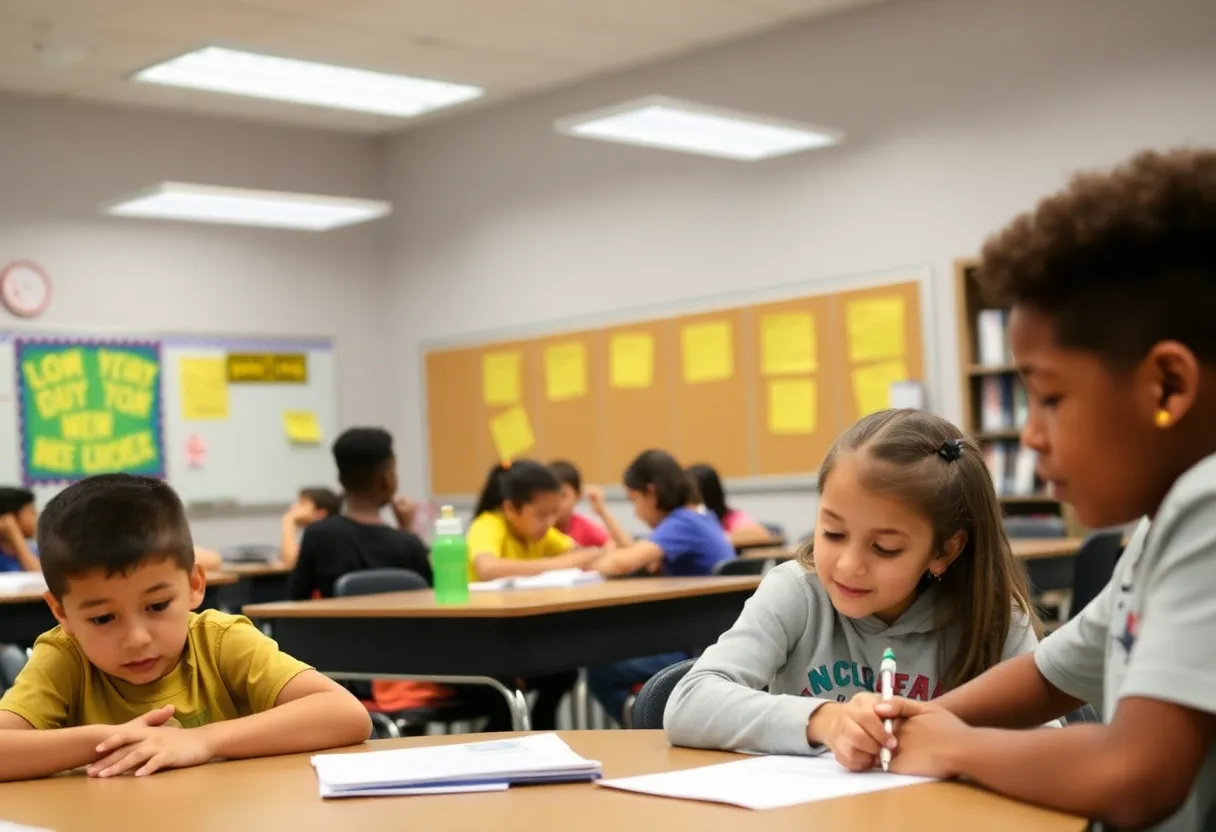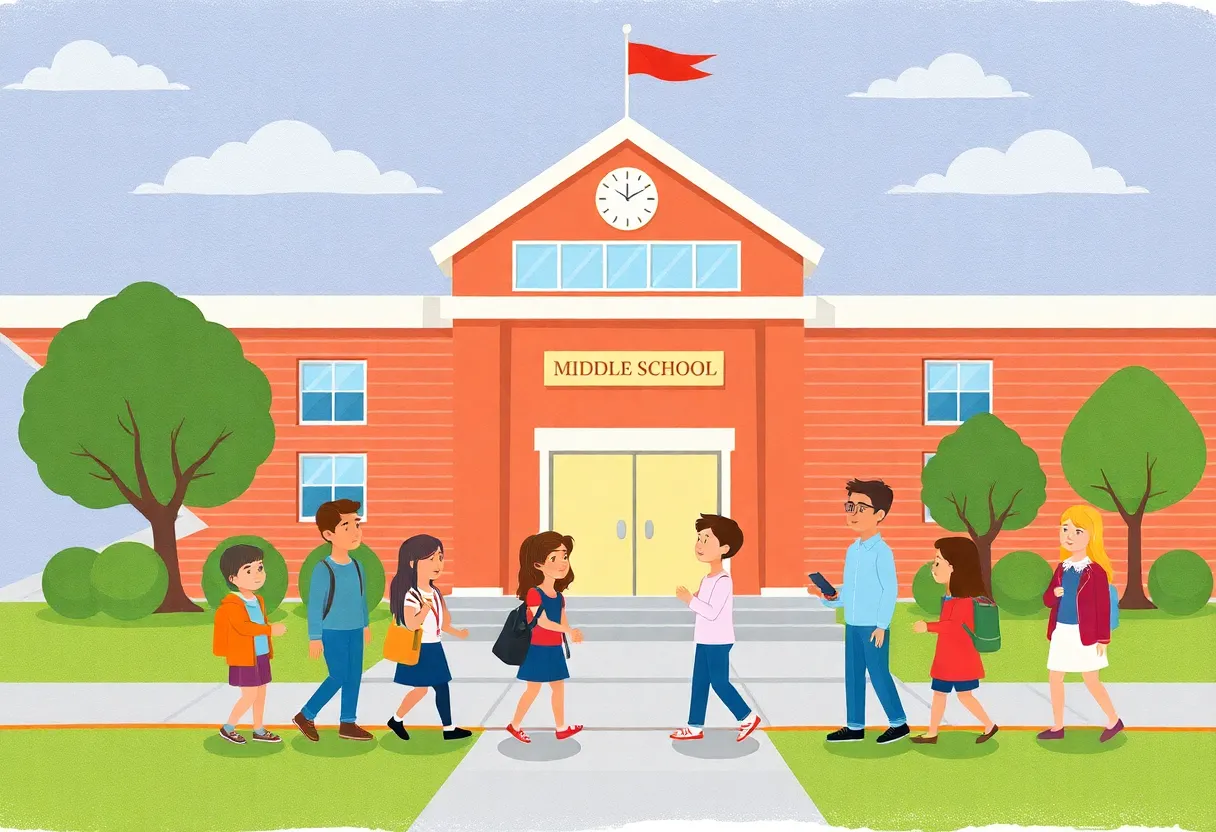News Summary
The Texas House has passed a significant bill that will initiate a multi-billion dollar program providing families with access to funds for private school tuition. This legislation, which has sparked a mix of support and opposition, emphasizes support for low-income families and students with disabilities. However, concerns arise over potential negative impacts on public schools and accusations of partisan maneuvering during the vote process. As the bill moves forward, Texas could be on its way to establishing the largest school voucher program in U.S. history.
A Bold Move for Education in Texas: A Multi-Billion Dollar Program on the Horizon
In the heart of Texas, a groundbreaking decision just took place that could reshape the educational landscape for families across the state! The Texas House has officially approved a bill to launch a remarkable program that allows families to access 1 billion dollars in taxpayer funds for private school tuition. This ambitious Senate Bill 2 makes waves, and the excitement (or frustration, depending on whom you ask) is palpable!
What Happened: The Late Night Vote
The vote, which saw a division of 86 in favor and 63 against, happened in the wee hours, shortly after 2 a.m. A rallying call for parents advocating for greater education possibilities has been echoed by the governor, celebrating what he considers a major victory in the quest for educational choice!
However, the outcome wasn’t without contention. All the Democrats and a pair of Republican legislators voted against the proposal, suggesting the divisive nature of this legislation. There are already discussions of how the program would work, especially since private schools must be operational for a minimum of two years before joining in!
Prioritizing Low-Income Families
The program emphasizes support for low-income families and students with disabilities, aiming to ensure those who may benefit the most from alternate education routes can access these funds. The funding model is designed to flexible tie education savings accounts to public funding levels, making adjustments possible based on budget availability. This could mean potential opportunities for more students to receive the education they deserve.
Critics Are Speaking Out
Despite its promising aspects, the proposed initiative isn’t without its critics. Detractors argue that this program predominantly serves families already enjoying the benefits of private education. Opponents warn it could exacerbate segregation in schools, raising questions about the long-term implications for public school quality and accessibility.
The Battle Over Vote Amendments
In the midst of debates, an amendment that would have allowed Texas voters to decide on the education savings accounts was surprisingly defeated. The atmosphere in the chamber was charged, with allegations swirling about potential threats directed at Republican lawmakers to secure votes in favor of the bill. Such claims underscore the tense climate surrounding this controversial topic.
Making History in Education Reform
If this bill makes it through the Senate without a hitch, it will position Texas to boast the largest school voucher program in U.S. history. Education advocates are keenly watching as the House recently greenlit another significant funding measure—House Bill 2, which allocates a hefty $7.7 billion for public school financing. Seen as a dual approach, this highlights the complex balancing act lawmakers are performing between traditional public school funding and expanding education choices.
The Aftermath: Next Steps in the Legislative Process
With Governor Abbott declaring the education savings account legislation one of his top agenda items, a signature is expected once the bill makes its way to his desk. Supporters hope this marks a transformative win for parents who desire a wider range of educational options for their kids.
Ongoing Discussions and Future Considerations
As the dust settles, it’s clear that the controversies aren’t over yet. Various amendments concerning income eligibility and oversight for the ESA program were floated during discussions, yet most were eventually set aside. Now, the bill will likely head to a conference committee to reconcile differences between the House and Senate versions—a crucial step before reaching definitive conclusions on Texas’s educational future.
With campaign donations from pro-voucher groups bolstering Republican support for school choice, the push for these programs seems to be part of a broader agenda. The road ahead looks intense, filled with impassioned discussions, active lobbying, and a whole lot of Texas-sized debate on what education should look like for the families across this vast state.
Deeper Dive: News & Info About This Topic
- KXAN: Texas Education Savings Accounts Bill Moves Closer to Becoming Law
- Fox 7 Austin: Texas House Expected Vote on School Vouchers
- My High Plains: Live Updates on Education Savings Accounts
- Community Impact: Texas Senate Passes $1B Education Savings Account Proposal
- KXXV: Texas Bill Increasing Public School Funding and Teacher Pay
- Wikipedia: Education in the United States
- Google Search: Texas Education Savings Accounts
- Google Scholar: Texas Education Reform
- Encyclopedia Britannica: Education
- Google News: Texas Education Vouchers







